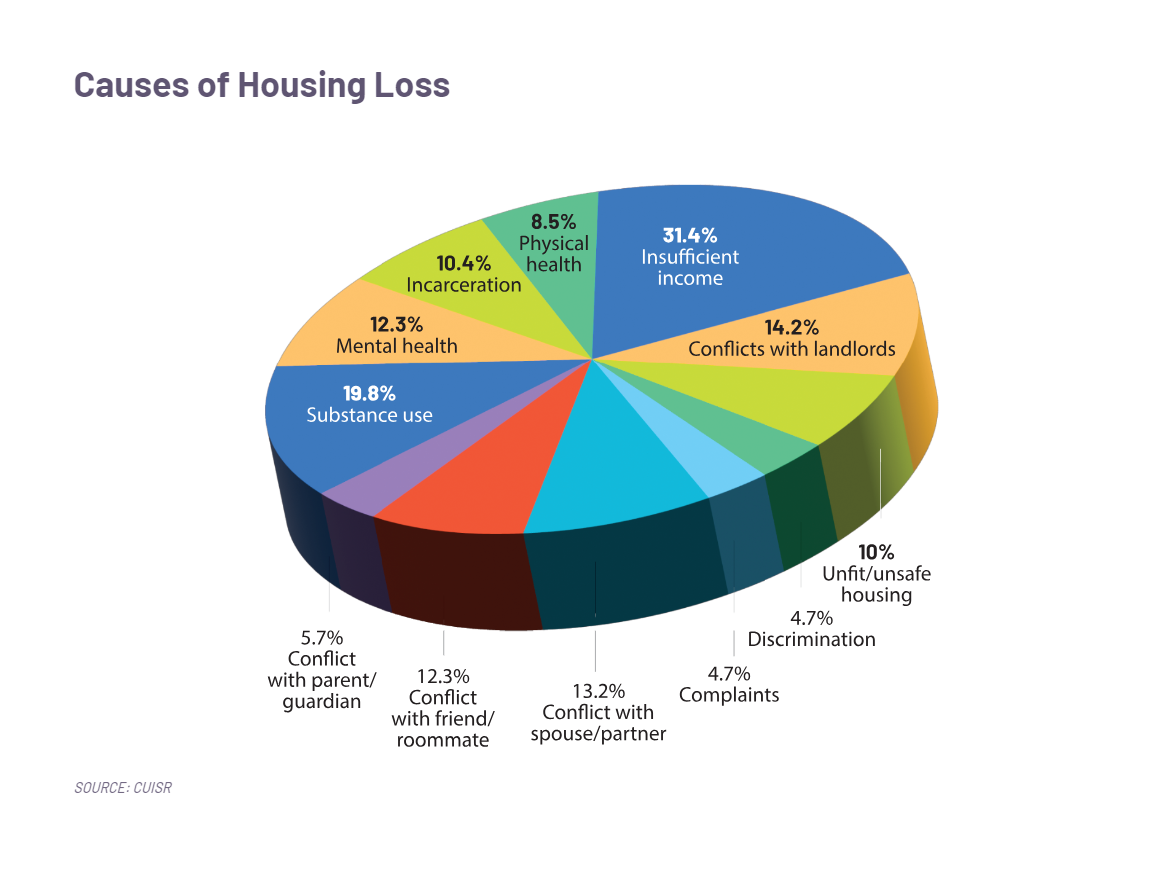A report was dropped by the Saskatoon Community Foundation giving some context on who is homeless in Saskatoon and what the contributing causes are.

The report, called Vital Focus on Homelessness in Saskatoon, said 59 per cent of people experiencing homelessness in 2022 did not have a permanent address for more than six months out of the year.

This number is up from the 55.3 per cent reported in 2018.
There were 550 people facing homelessness in Saskatoon as of April 28, 2022.
Out of those people, 90.1 per cent were Indigenous, 50 per cent were male, 20 per cent were children and youth, 47 per cent were adults and the remaining 32 per cent did not give an age.
The report stated that many people facing chronic homelessness also contend with complex health issues.
It said that 36 per cent of people reported learning or cognitive challenges, 48 per cent had physical limitations, 53 per cent experienced intergenerational or residential school trauma, 53 per cent managed an illness or medical condition, 67 per cent faced mental health issues and 86 per cent reported dealing with substance abuse problems.
The report also delved into the housing issues faced in Saskatoon and across Canada.
It said the Saskatoon Housing Initiatives Partnership showed modelling that the city needed at least 178 new affordable rental housing units annually, adding that the city has averaged 81 units annually over the past eight years.

Get daily National news
A chart also outlined the different causes of housing loss, with the Community-University Institute for Social Research highlighting the most common issue being insufficient income.
The report also pointed out that homeless encampments in the city are increasing, with 116 reported at the tail end of 2021, 512 in 2022 and 599 recorded between January and August of 2023.
It said that for households earning the lowest 20 per cent of income, only seven per cent of properties in Saskatoon were affordable, most of which were single-bedroom suites or smaller.
Barriers to housing were also highlighted, noting people faced overlapping needs for support:
- 68.1 per cent said money was a barrier
- 60.3 per cent needed help to find affordable places
- 52.6 per cent needed assistance with housing applications
- 50.9 per cent needed help with transportation to see housing
- 48.3 per cent needed assistance getting identification
- 37.1 per cent needed mental health supports
- 31 per cent needed help in addressing health needs
- 31.9 per cent needed harm reduction support
- 22.4 per cent needed help managing alcohol issues
- 20.7 per cent needed disability accessibility
The report said one in six people in the city live in housing they can’t afford (shelter that costs more than 30 per cent of their income). This made up 11.2 per cent of owners and 30.7 per cent of renters.
It added that many people also lived in unsuitable and overcrowded homes, or inadequate homes that needed major repairs.

Along with the report came an announcement about funding. Three Saskatoon organizations are receiving money to combat homelessness thanks to the Robert Steane Fund to Alleviate Homelessness.
The Saskatoon Community Foundation said more than $1.2 million would be supplied over five years.
Central Urban Metis Federation Inc. will receive funding for a transitional housing manager position who will support families learning to improve physical, emotional and mental health, help manage social interactions, mediate issues, and advocate for education and employment services.
A transitional housing manager position will also be supported for YWCA Saskatoon to help support women to maintain transitional housing successfully. It was noted this position is part of the YWCA’s Transitional Housing Project.
Community Legal Assistance Services for Saskatoon Inner City Inc. will also receive funding for its Interdisciplinary Approach to Housing – Community and Legal Supports project.
The project aims to help people navigate social and legal systems and help secure basic services like financial support, food and short-term shelter.
The report comes on the heels of the provincial government announcing supports for homelessness and addictions, noting that $40.2 million was being allocated for things like supportive housing spaces and emergency shelter spaces, and $49.4 million was allocated over five years for more addictions treatment spaces and an improved intake system.
The announcement on Friday involved multiple government ministries, with municipalities being brought to the table to assist with the efforts.
“Winter is coming, it’s getting cold out there. People are very concerned about what is going to happen,” Saskatoon Mayor Charlie Clark said, adding that municipalities will be working with the province to identify locations where some of these new services could be located.
Saskatoon Tribal Council Chief Mark Arcand also weighed in on the Friday announcement, saying the investment from the province likely wasn’t enough, but it was a step in the right direction, and he wanted to work with whoever got these newly announced facilities.
“They’re talking about keeping people off the streets this winter, perfect. How do we keep supporting that?” Arcand said.









Comments
Want to discuss? Please read our Commenting Policy first.